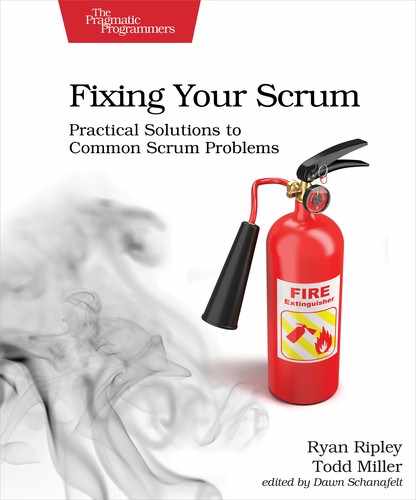Some of the stories we’ve shared in this book were hard to write about. This is the hardest one for me.
I was the Scrum master on a project and we were in crunch mode. We were optimistic throughout the sprint that the increment was looking good and the sprint goal was achievable. But then, two days away from the sprint review, we ran into technical problems with a third-party library we depended on. The day before the review, I strongly recommended to the team that we cancel the sprint review because we weren’t going to have anything to show. So we canceled it.
Our stakeholders didn’t say anything and didn’t seem bothered by the cancellation. We planned our next sprint with the same sprint goal and pushed forward. We solved the problems during that sprint, but it ended up requiring a Herculean effort.
During the next sprint review—the first one we’d held in many weeks—the Scrum team talked about the problems we had faced, showed working software, and discussed where we were heading. About halfway through the review, a stakeholder commented that the solution we were building was not that important and that we should have spent our time doing something else. Anger erupted in the room, and the product owner bore the brunt of it. It was tense and really struck us hard. We learned the hard way that canceling even one sprint review could result in the team heading in the wrong direction, because we didn’t have timely input from stakeholders. We agreed to never cancel a sprint review again.
